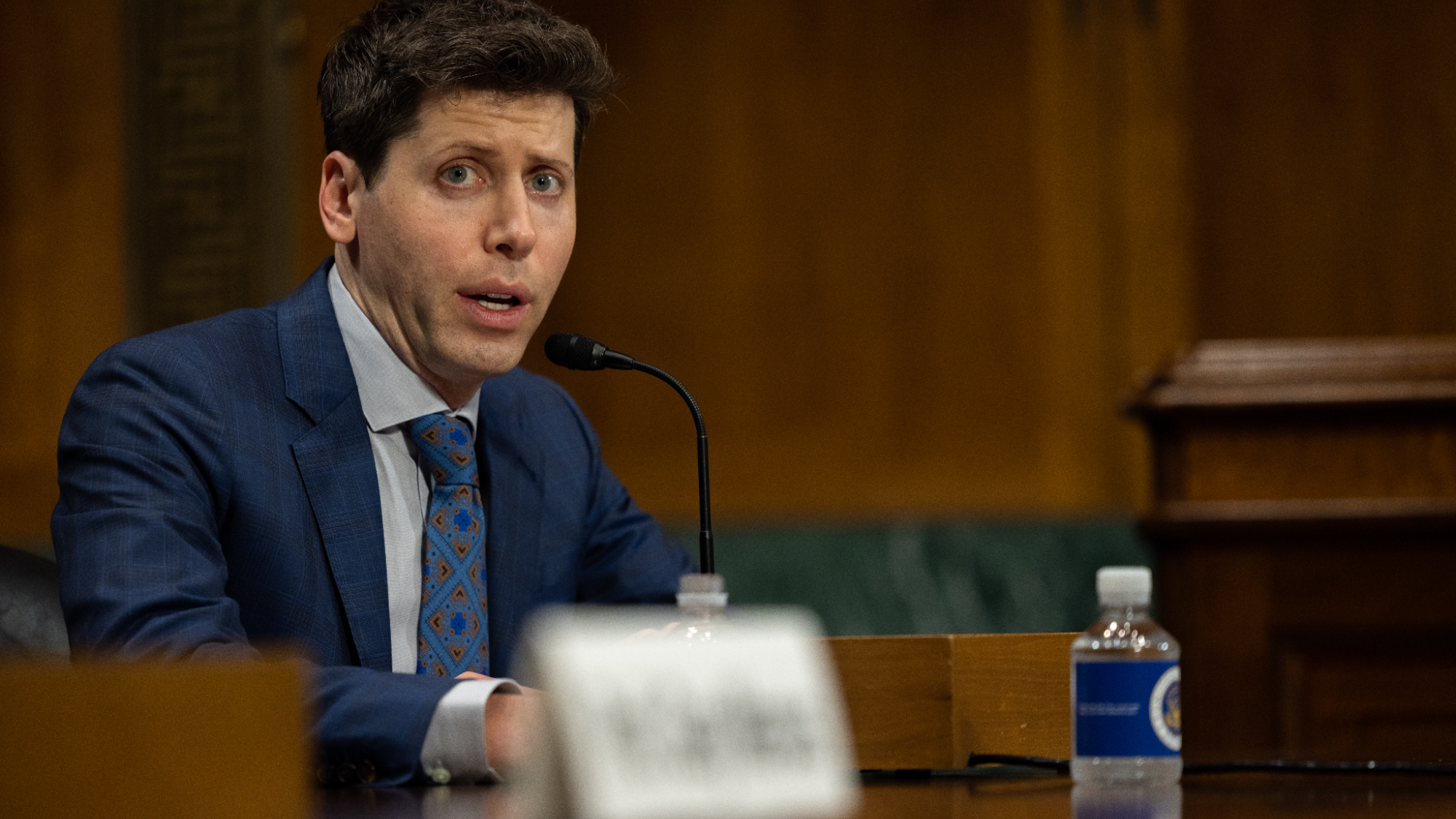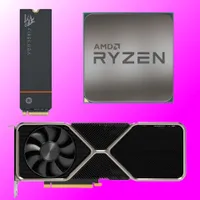ChatGPT boss calls for a new government agency to keep AI companies in check
OpenAI's Sam Altman answered lawmakers' questions about the risks of AI and how it should be regulated.

Keep up to date with the most important stories and the best deals, as picked by the PC Gamer team.
You are now subscribed
Your newsletter sign-up was successful
Want to add more newsletters?

Every Friday
GamesRadar+
Your weekly update on everything you could ever want to know about the games you already love, games we know you're going to love in the near future, and tales from the communities that surround them.

Every Thursday
GTA 6 O'clock
Our special GTA 6 newsletter, with breaking news, insider info, and rumor analysis from the award-winning GTA 6 O'clock experts.

Every Friday
Knowledge
From the creators of Edge: A weekly videogame industry newsletter with analysis from expert writers, guidance from professionals, and insight into what's on the horizon.

Every Thursday
The Setup
Hardware nerds unite, sign up to our free tech newsletter for a weekly digest of the hottest new tech, the latest gadgets on the test bench, and much more.

Every Wednesday
Switch 2 Spotlight
Sign up to our new Switch 2 newsletter, where we bring you the latest talking points on Nintendo's new console each week, bring you up to date on the news, and recommend what games to play.

Every Saturday
The Watchlist
Subscribe for a weekly digest of the movie and TV news that matters, direct to your inbox. From first-look trailers, interviews, reviews and explainers, we've got you covered.

Once a month
SFX
Get sneak previews, exclusive competitions and details of special events each month!
OpenAI CEO Sam Altman, IBM chief privacy and trust officer Christina Montgomery, and New York University professor emeritus Dr Gary Marcus were questioned today by a US Senate subcommittee about the potential risks of artificial intelligence and how it should be regulated. Lawmakers expressed concerns over the potential for AI-generated misinformation and inaccuracies (chatbots have a tendency to lie), political bias, and copyright infringement.
Altman told senators that this developing technology requires "regulatory intervention by governments," which is "critical to mitigate the risks of increasingly powerful models." To that end, the OpenAI CEO said that an agency or agencies should be empowered to create and enforce rules for the AI industry, issuing AI companies licenses and revoking those licenses should their technologies run amok.
Dr Marcus also agreed that creating a new government agency would be the best way to regulate AI, saying we "probably need a cabinet-level organization." He compared AI models to "bulls in a china shop" in his opening statement.
One big concern that came up a lot during the hearing was about AI art generation and copyright. Altman told the senators that OpenAI is working on a copyright system that would pay artists if their works were used to generate new art, saying that "artists deserve control." Altman also added that new regulations should require AI-generated images to disclose that were created with AI tools.
Why is Altman, the CEO of one of the biggest players in AI, so keen on regulation? Without ruling out the possibility that he has genuine concerns, in the past, powerful companies with lots of resources have called for regulation when they think it's inevitable and want to influence it, or to make it harder for smaller startups in the industry to break in.
Although he's pro-regulation, Prof Marcus calls this "regulatory capture", where, if done wrong, new regulation could inadvertently create an AI monopoly.
Senator Blumenthal, the subcommittee chairman, said that the government could "create ten new agencies, but if you don't give them the resources," big AI companies will "run circles" around them.
Best CPU for gaming: Top chips from Intel and AMD
Best gaming motherboard: The right boards
Best graphics card: Your perfect pixel-pusher awaits Best SSD for gaming: Get into the game first
Keep up to date with the most important stories and the best deals, as picked by the PC Gamer team.

Jorge is a hardware writer from the enchanted lands of New Jersey. When he's not filling the office with the smell of Pop-Tarts, he's reviewing all sorts of gaming hardware, from laptops with the latest mobile GPUs to gaming chairs with built-in back massagers. He's been covering games and tech for over ten years and has written for Dualshockers, WCCFtech, Tom's Guide, and a bunch of other places on the world wide web.


